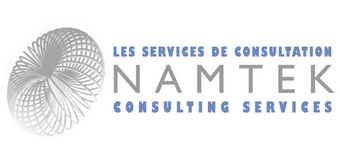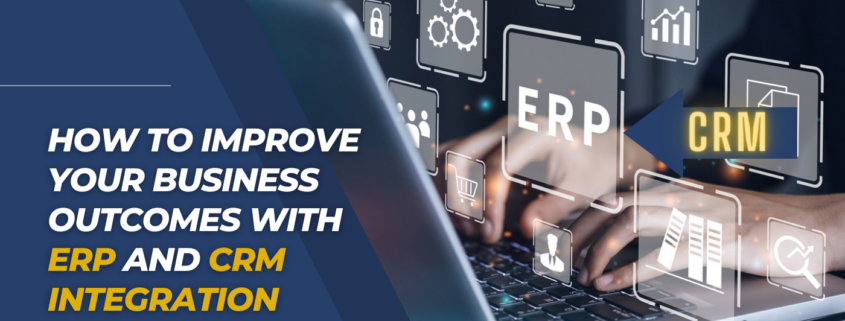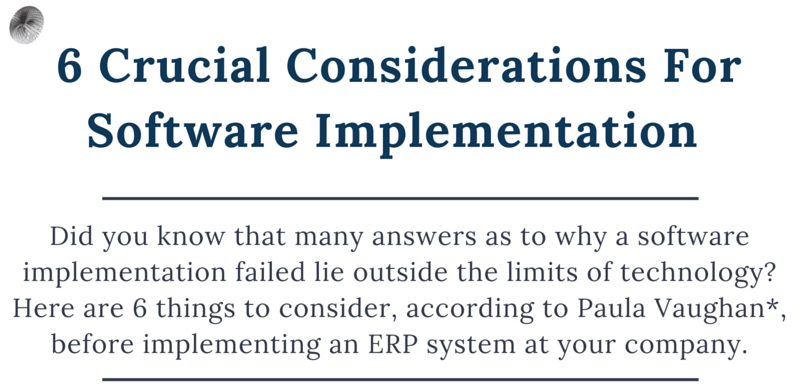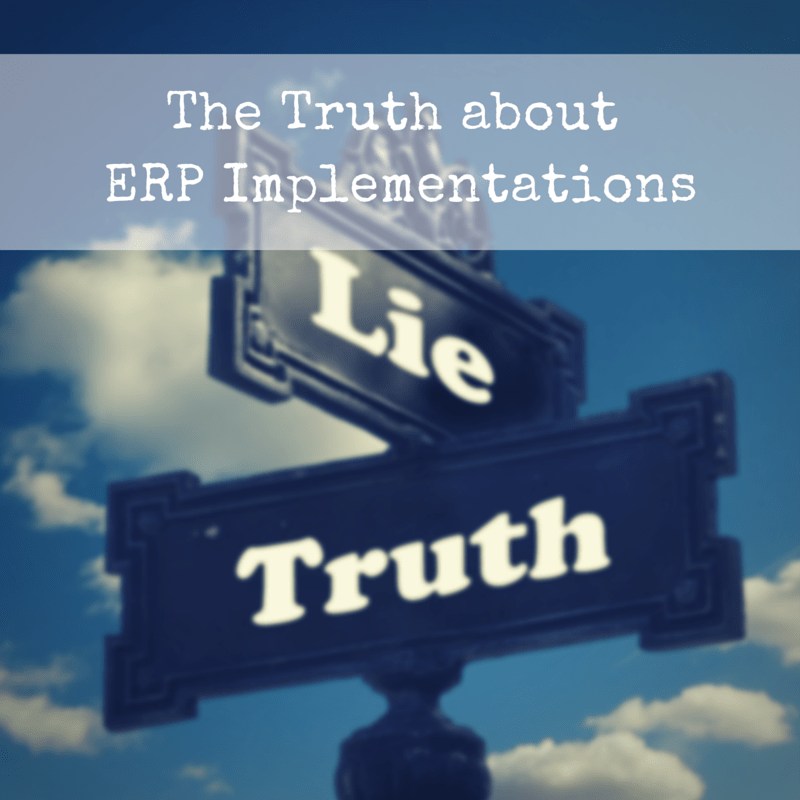How to Improve Your Business Outcomes with ERP and CRM Integration
Last Updated on March 8, 2023 by Tatyana Vandich
Integrating Enterprise Resource Planning (ERP) and Customer Relationship Management (CRM) systems can bring numerous benefits to business. In this article, we’ll explore the reasons why companies need ERP and CRM integration.
What is ERP and CRM?
Enterprise Resource Planning (ERP) and Customer Relationship Management (CRM) are two critical business systems used by companies to manage and optimize their operations.
ERP is a comprehensive software solution that helps organizations manage their core business processes, including finance, procurement, human resources, and supply chain management. It provides a single, centralized view of all data and processes, enabling organizations to make informed decisions and improve their efficiency.
On the other hand, CRM is a software solution that helps organizations manage their interactions and relationships with customers. It provides a centralized view of customer data, including sales, marketing, and support activities, enabling organizations to better understand their customers and improve the customer experience.
By combining the capabilities of ERP and CRM, organizations can drive better business outcomes and gain a competitive advantage.
It is important to note that some software manufacturers have included CRM capabilities and features within their ERP software to have the best of both worlds.

What is CRM and ERP Integration?
CRM and ERP integration refers to the process of connecting these two business systems. The goal of this integration is to provide a single, centralized view of all customer and business data, allowing companies to make informed decisions and improve their operations.
By integrating their CRM and ERP systems, organizations can eliminate data duplication, improve data accuracy, and streamline their processes. CRM and ERP integration enables organizations to automate workflows, synchronize customer and business data.
Example of ERP and CRM Integration
For example, NetSuite is a powerful system that can automate and optimize many of a company’s business processes. However, it can be even more powerful when integrated with other ERP and CRM systems.
When NetSuite is integrated with an ERP system such as SAP, it can provide a seamless flow of information between the two systems. This may include finance, supply chain, and inventory management. In addition, integrating NetSuite with a CRM system such as Salesforce can provide a unified view of customer data, allowing you to manage sales, marketing, and customer service more effectively.
In addition, integration can also automate the flow of data between systems, eliminating the need for manual data entry, reducing errors and saving time. This can lead to a more efficient and effective workflow, improving the bottom line of the business.
Benefits of ERP and CRM Integration
By combining the capabilities of CRM and ERP, companies can gain a competitive advantage and drive better business outcomes.
Improved data accuracy and consistency
Integrating ERP and CRM systems provides a single source of truth for customer and operational data. This leads to improved data accuracy and consistency, which can drive better decision-making and increased operational efficiency.
Enhanced customer experience
By integrating customer data from the CRM system into the ERP system, organizations can gain a more comprehensive view of their customers, including their purchasing history, preferences, and interactions with the company. This information can be used to improve the customer experience by providing more personalized service and offerings.
Increased operational efficiency
Integrating ERP and CRM systems can help organizations streamline their operations by eliminating manual data entry and reducing errors. Automating workflows and data transfer between systems can also reduce the time and resources required to complete tasks, freeing up employees to focus on other tasks.
Better sales and marketing alignment
Integrating ERP and CRM systems allows sales and marketing teams to share information and collaborate more effectively. Sales teams can access customer data from the CRM system, including lead and opportunity information, and use it to inform their sales strategy. Marketing teams can use the data from the ERP system to better understand customer behavior and improve their marketing efforts.
Improved financial reporting
Integrating ERP and CRM systems provides a comprehensive view of financial and customer data, making it easier for companies to generate financial reports and analyze their performance. This can help organizations make more informed decisions and improve their financial performance.
Streamline Operations with Magic xpi: The Ultimate Solution for ERP and CRM Integration
One of the best solutions for integrating ERP and CRM systems is Magic xpi. Magic xpi is an integration platform that allows companies to easily connect and integrate multiple systems, including ERP and CRM. With Magic xpi, companies can automate workflows, synchronize data between disparate business systems, and integrate with a wide range of applications, databases, and systems.
USEFUL READING: Magic xpi Integration Platform: The Best Fit for Enterprise Data Integration
Magic xpi offers a visual drag-and-drop visual interface, allowing users to easily build and manage integrations without needing to write code. Additionally, Magic xpi offers pre-built connectors, making it easier and faster to integrate systems. By using Magic xpi, organizations can improve their operational efficiency, streamline their processes, and drive better business outcomes.

What is the Most Widely Used ERP Systems?
Some of the most popular Enterprise Resource Planning (ERP) systems include:
SAP ERP
SAP is one of the largest ERP providers in the world, SAP ERP, SAP Business One, and SAP S/4HANA offers a comprehensive solution for managing core business processes.
Oracle ERP
Oracle provides a suite of ERP solutions such as Oracle NetSuite, Oracle Fusion Cloud ERP, Oracle JD Edwards including financials, procurement, and supply chain management, to help companies manage their operations.
Microsoft Dynamics ERP
Microsoft Dynamics ERP offers a range of solutions for small, medium, and large organizations, including finance, supply chain management, and human resources.
Infor ERP
Infor provides a range of industry-specific ERP solutions to help organizations manage their operations and gain a competitive advantage.
What is the Most Popular CRM?
Some of the most popular Customer Relationship Management (CRM) systems include:
Salesforce CRM
Salesforce is a leading CRM system that provides a comprehensive view of customer interactions and helps organizations manage their sales, marketing, and customer service activities.
Hubspot CRM
Hubspot is all-in-one CRM solution that helps organizations manage their customer interactions and improve the customer experience.
SugarCRM
A flexible CRM software that can be customized to fit the needs of any business.
Zoho CRM
Zoho is a cloud-based CRM solution that provides a range of sales, marketing, and customer service capabilities to help organizations manage their customer relationships.
Pipedrive CRM
Pipedrive is a sales-focused CRM solution that helps organizations manage their sales processes and improve their productivity.
These are just a few examples of the most popular business systems. Organizations must choose the system that best suits their needs and fits within their budget.
Conclusion: How to Improve Your Business Outcomes with ERP and CRM Integration
At Namtek Consulting Services, we offer comprehensive business systems integration services to help organizations improve their operations and drive better business outcomes. Our team of experts has extensive experience integrating ERP and CRM systems, as well as other critical systems and applications.
Our integration solutions are designed to meet the unique needs of each organization and can be customized to fit their specific requirements.
We use the latest integration tools and technologies, including Magic xpi, to ensure a smooth and seamless integration process.
Contact us to learn more about our integration services and how we can benefit your business.











